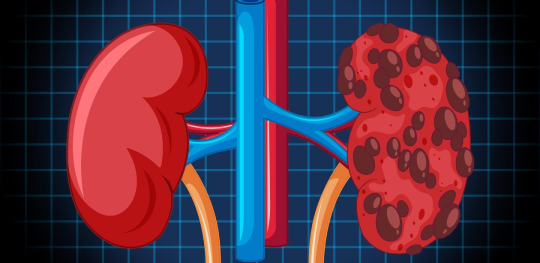Chronic Kidney Disease (CKD) or chronic renal failure is a condition where there is a progressing loss of kidney function as time passes, which can range from months to years. This condition, unlike acute kidney injury (temporary kidney failure that is reversible partially or completely) is permanent and irreversible. In India the projected number of deaths due to chronic diseases will rise from 3.78 million in 1990 (40.4% of all deaths) to an expected 7.63 million in 2020 (66.7% of all deaths). Management of CKD needs attention to details and constant guidance. If you are suffering from CKD and is unsure of how to manage this condition, reach out to best Nephrology hospital in Delhi.
Also, if you have been diagnosed with renal failure and looking for transplant, contact Best Kidney Transplant Hospital in Delhi, and be assured of receiving the best operative and post-operative care.
Symptoms:
The subtle symptoms of this ailment is what it made us call it “silent killer”. The symptoms seem very faint initially, and tend to get noticeable when a commendable amount of damage is done.
The symptoms of CKD include:
1.Edema (swelling of the legs, puffiness of face)
2.Fatigue (tiredness)
3.Hypertension (high blood pressure)
4.Frothy urination
5.Decreased urine output
6.Nocturia (frequent urination in the night)
7.Anaemia
8.Loss of appetite
9.Nausea and vomiting
10.Itchy skin (focal or generalized)
11.Insomnia - lack of sleep in the night
12.Decreased mental alertness and concentration
13.Shortness of breath
14.Erectile dysfunction in men
15.Seizures - myoclonic jerks commonly
16.Altered sensorium
17.Bony pains
18.Chest pain
19.Uremic fetor (urine like odour)
Managing CKD:
There is no specific line of treatment for chronic kidney disease, but is mainly focused on successful management for buying in more time and slowing the process. Getting diagnosed with CKD at the initial stages, lead to successful management and have lesser risks involved.
Those with high risk factors should get their kidney functions need to get checked regularly.
Preventing Progression Of CKD:
1.Diabetics need to control their blood sugar levels - maintain glycosylated Hemoglobin levels <7.0
2.Keep check on the blood pressure
3.Salt and fluid restriction in hypertensive and edematous (those prone to swelling/edema) patients
4.Limit the protein intake - avoid red meat, reduce the intake of fish, egg, chicken, pulses and legumes.
5.Reduction of Potassium – avoid intake of fruits, fruit juices, coconut, coconut water, raw vegetables, green leafy vegetables and tomatoes. Fruits low in Potassium such as apple, pineapple, guava and papaya can be had in moderation.
6.Avoid nephrotoxic agents like NSAID’s (pain killers) and certain antibiotics
7.Cut out alternative medications that can cause damage to the kidneys
8.Exercise regularly and control weight
9.Quit smoking
10.Quit alcohol
Treatment Options for End Stage Renal Disease (ESRD)
1.Haemodialysis - Purification of the blood, using an artificial kidney.
2.Peritoneal Dialysis: Using the patient’s peritoneal membrane as a filter and removing waste by instilling fluid within the abdomen (can also be performed at home).
3.Kidney Transplantation: Replacing the diseased kidney with a new kidney obtained from a live related donor or a matched deceased donor.
Know more about the management and treatment options, with Saroj Hospital, Centre for Kidney Transplant & Renal Sciences in Delhi. We promise the best medical care for you and help you with a speedy recovery post operation. Managing CKD might sound difficult, but with correct medication and guidance, one can live a healthy and good life.



